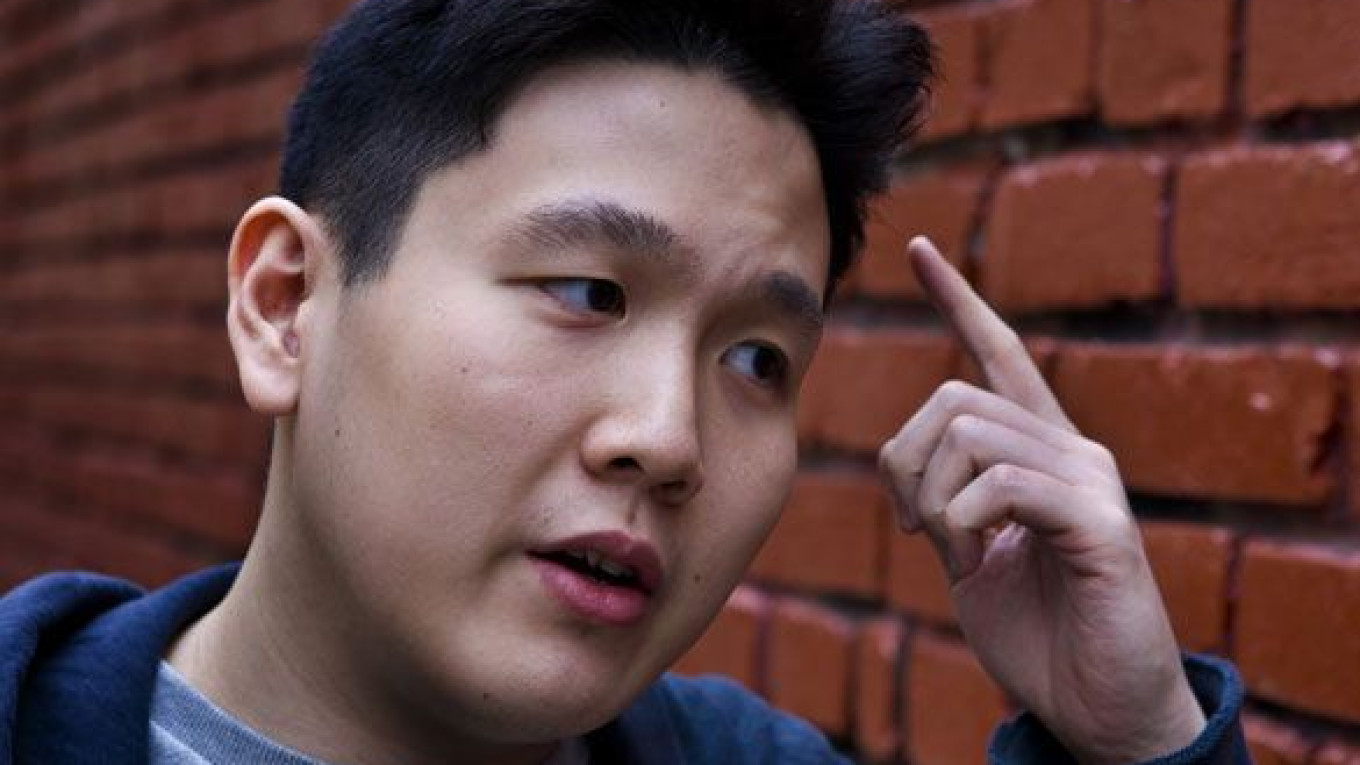Sim Eih Xing, a 23-year-old Malaysian medical student, was traveling by metro to his surgery class as usual on the dull, gray morning. Instead, he ended up undergoing surgery himself.
The metro train that he entered Monday was carrying a suicide bomber.
"She was standing in the wagon [train car], near the door, in a very abnormal posture as if she wanted to get out of the metro, but she did not," Sim said in an interview Thursday, a day after he was released fr om the hospital.
The glassy-eyed woman wearing a bulky purple jacket turned out to be one of two suicide bombers who killed 39 people and injured more than 70 others in twin attacks on the Moscow metro's Red Line.
"She wasn't wearing a scarf. Her eyes were very open, like on drugs, and she barely blinked, and it was scary," Sim told The Moscow Times. "But I didn't think she was a suicide bomber. I thought that she might be just mentally ill. So I stood behind her."
Standing near his dormitory at the Sechenov Moscow Medical Academy, a white bandage wrapped around his left leg, Sim recollected how he left that same building with his friends at around 8 a.m. Monday and boarded a packed train at the Sportivnaya metro station. He was going to change trains at Okhotny Ryad to take the Green Line south to the Kolomenskaya station.
But the train took 15 to 20 minutes instead of the usual six to travel the short distance to the Park Kultury station, where the bomber set off her explosives. Unknown to Sim, trains on the Red Line were behind schedule because the other suicide bomber had just detonated her explosives at the Lubyanka station, several stations north on the Red Line.
"The metro stops and goes, stops and goes for 15 to 20 minutes. … Once it reached Park Kultury, I had a real feeling that I needed to get out," Sim said.
He left the train with his friends.
"Once I stepped on the platform," he said, "the thing exploded."
The woman detonated the bomb about a meter away from Sim. He managed to escape with minor cuts to his left leg and singed hair, still visible on the left side of his head Thursday.
"It was very loud. I could see white sparks on my left. I thought I was dead at that time," Sim said. "I felt like I was being controlled by someone else. I didn't panic. I just walked like normal."
He walked forward and turned back. The scene was dramatic: Piles of people lying on the floor and around the train car, some seriously injured, some dead.
"I regained my hearing and could hear people shouting, people crying," Sim said. "They started to run and find their way out of the metro."
He said many people did not know how to react and stood with expressionless faces.
"I kept on praying all the way up the metro because I thought that there might be another bomb," he said. "If I hadn't gotten out of the wagon at that time, I would be dead already. It's unexplainable."
At that moment, Sim felt something wet on the leg of his jeans, but he only saw the wounds and particles from the explosives after he had run outside the metro building. Several ambulances already stood waiting.
After receiving first aid, Sim and his friends decided to walk to the hospital themselves.
"I saw people who needed the ambulance more than me," he explained. He said he has not been interviewed by investigators.
Sim was among four foreign students wounded in the bombings, including three from Malaysia and one from Israel. Two remained hospitalized Thursday, and all are receiving psychological counseling, said Artyom Markaryan, a vice principal for foreign students at the Sechenov academy, wh ere all four study.
Markaryan said the four would apply for the state compensation offered by Prime Minister Vladimir Putin on Monday. Survivors are eligible for 200,000 rubles to 400,000 rubles ($6,800 to $13,600) in federal compensation, depending on the extent of their injuries. Moscow City Hall is also offering compensation.
"They are going to join the compensation program announced by Putin so that they won't remain isolated in these circumstances," Markaryan said.
He said school staff was visiting the students every day to check on their needs and health. He said that none has voiced a desire to leave Russia. "There is an understanding that terrorism is a global problem," he said.
Sim has lived in Russia for 6 1/2 years and said that he is not afraid to take the metro, even after the explosion.
"I still like Moscow," he said with a broad smile.
On Friday, he will resume medical classes.
"I really thank God for everything. Two of my friends were farther away from the explosion, but their injuries are worse than mine," he said. "I think we must appreciate people around us and cherish every moment of our life."
A Message from The Moscow Times:
Dear readers,
We are facing unprecedented challenges. Russia's Prosecutor General's Office has designated The Moscow Times as an "undesirable" organization, criminalizing our work and putting our staff at risk of prosecution. This follows our earlier unjust labeling as a "foreign agent."
These actions are direct attempts to silence independent journalism in Russia. The authorities claim our work "discredits the decisions of the Russian leadership." We see things differently: we strive to provide accurate, unbiased reporting on Russia.
We, the journalists of The Moscow Times, refuse to be silenced. But to continue our work, we need your help.
Your support, no matter how small, makes a world of difference. If you can, please support us monthly starting from just $2. It's quick to set up, and every contribution makes a significant impact.
By supporting The Moscow Times, you're defending open, independent journalism in the face of repression. Thank you for standing with us.
Remind me later.


